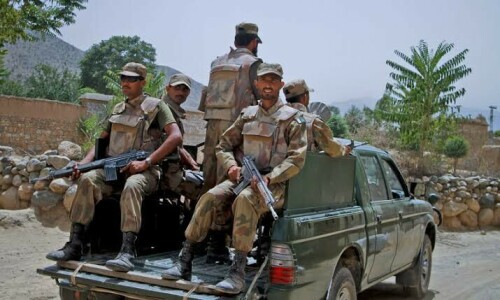PRIME MINISTER Imran Khan on Monday inaugurated the Clean Green Pakistan Index, a project that will, in its initial phase, rank 19 cities in Punjab and KP on their cleanliness and ‘green’ character. This ranking, the government hopes, will invoke a competition among cities for improving their infrastructure and environmental sustainability. The cities are to be judged on different criteria including sanitation, beautification and the usability of public spaces. Even before he became prime minister, Mr Khan attached a great deal of importance to conserving the natural environment — unlike previous dispensations. He has also raised the issue at several international forums, including the UN General Assembly in September. The new project, then, is in keeping with his vision of a green Pakistan. However, how workable is it considering the paralysis in the local governments of Punjab and KP, as well as in the national economy? It is unclear to what extent the local administrations will be empowered to take decisions and if they can furnish or request additional funds for building parks, etc. In fact, for all the prime minister’s endeavours, his government has failed to come up with a comprehensive strategy for mitigating the effects of climate change.
While the prime minister was not wrong in saying during the CGPI inauguration that the previous Punjab government was responsible for turning Lahore into a concrete jungle, the fact does not detract from the PTI’s own abysmal performance, its ‘billion-tree tsunami’ in KP notwithstanding. For example, the flagship development project of the PTI in KP, the Peshawar BRT, has been criticised on numerous counts, ranging from the destruction of public spaces to the use of substandard material for construction. Moreover, the PTI’s own state minister for environment, Zartaj Gul, downplayed the eye-burning smog in Punjab, indicating that it had been exaggerated by those with ‘vested interests’. International rights groups have called out the government over its inaction in tackling the smog hazards but so far there is no clear plan for improving the air quality of Lahore. Meanwhile, the ban on the sale and manufacture of single-use plastics has seen very limited implementation and factories producing them have hardly been checked. There is a lot the government can do to match its words with actions and deliver on its promises of an unpolluted environment by taking small but sustainable steps. However, blaming past dispensations while ignoring its own shortcomings is not the answer.
Published in Dawn, November 27th, 2019












































